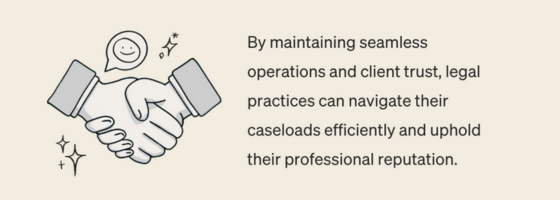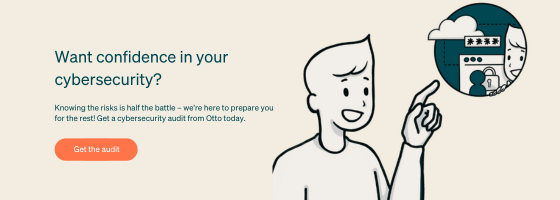Your small business is increasingly reliant on technology to drive operations, enhance productivity, and serve customers efficiently. However, this reliance also exposes you to cyber threats that can disrupt operations, compromise sensitive data, and damage your reputation!
In this article, we explore the critical relationship between business continuity and cybersecurity and how they collectively ensure the smooth functioning and growth of small businesses. By examining examples across various sectors, including manufacturing businesses, legal practices, accounting practices, digital agencies, local government bodies, medical practices, and educational institutions, we’ll demonstrate to you the significance of integrating robust cybersecurity practices with comprehensive business continuity strategies.
Manufacturing businesses
Manufacturing businesses rely on interconnected systems and data-driven processes to streamline production, inventory management, and supply chain operations. Implementing robust cybersecurity measures protects critical systems from cyber threats, ensuring continuous production, preventing disruption to the supply chain, and safeguarding sensitive intellectual property.

Legal practices
Law firms handle highly sensitive client information, including confidential case files, financial records, and personally identifiable information (PII). A strong cybersecurity framework ensures the integrity and confidentiality of client data, safeguarding attorney-client privilege, and mitigating the risk of data breaches. By maintaining seamless operations and client trust, legal practices can navigate their caseloads efficiently and uphold their professional reputation.

Accounting and tax practices
Accounting and tax firms handle financial data, including payroll information, tax records, and client financials. Cybersecurity plays a pivotal role in protecting this sensitive information from unauthorised access or manipulation. By implementing robust cybersecurity controls, such as multi-factor authentication and encryption, accounting practices can ensure the confidentiality, integrity, and availability of financial data, guaranteeing the continuity of financial operations and client trust.
Digital agencies
Digital marketing companieshandle vast amounts of creative assets, marketing strategies, and client data. Cybersecurity measures not only protect valuable intellectual property but also safeguard client information from data breaches or unauthorised disclosure. By prioritising cybersecurity and business continuity, digital agencies can maintain seamless operations, deliver on client commitments, and preserve their reputation as reliable partners in the competitive digital landscape.
Local government
Local government bodies manage a diverse range of critical services, including public safety, infrastructure, and citizen records. Strong cybersecurity practices protect sensitive citizen data from potential cyber threats. By ensuring business continuity, local government agencies can provide uninterrupted services, maintain public trust, and effectively respond to community needs.
Medical and health practices
Medical, health, and wellbeing practices handle highly sensitive patient records, medical histories, and personal health information. Robust cybersecurity measures are vital to protect patient privacy, comply with healthcare regulations, and prevent potential data breaches. By prioritising cybersecurity and business continuity, medical practices can ensure seamless patient care, maintain compliance with data protection laws, and uphold their reputation as trusted healthcare providers.
Educational institutions
Educational institutions house extensive student and staff data, including academic records, personal information, and research data. Cybersecurity safeguards this valuable information, ensuring its confidentiality and integrity. By integrating strong cybersecurity practices into their business continuity strategies, educational institutions can provide uninterrupted learning environments, protect student and staff data, and preserve their reputation as institutions of trust.
For small businesses, the interplay between business continuity and cybersecurity is paramount in today’s technology-driven landscape. By implementing robust cybersecurity measures and comprehensive business continuity strategies by outsourcing to the right MSP, organisations can mitigate risks, protect sensitive data, maintain operations, and preserve their reputation. Whether in manufacturing, legal, accounting, digital agencies, local government, medical practices, or educational institutions, prioritising cybersecurity and business continuity ensures the seamless functioning and long-term success of small businesses in an ever-evolving digital world.
If you’d like to find out how we can help your small business become more resilient, call us for a chat – we are an ISO27001 certified MSP in Melbourne and we specialise in affordable, effective small business tech solutions!




